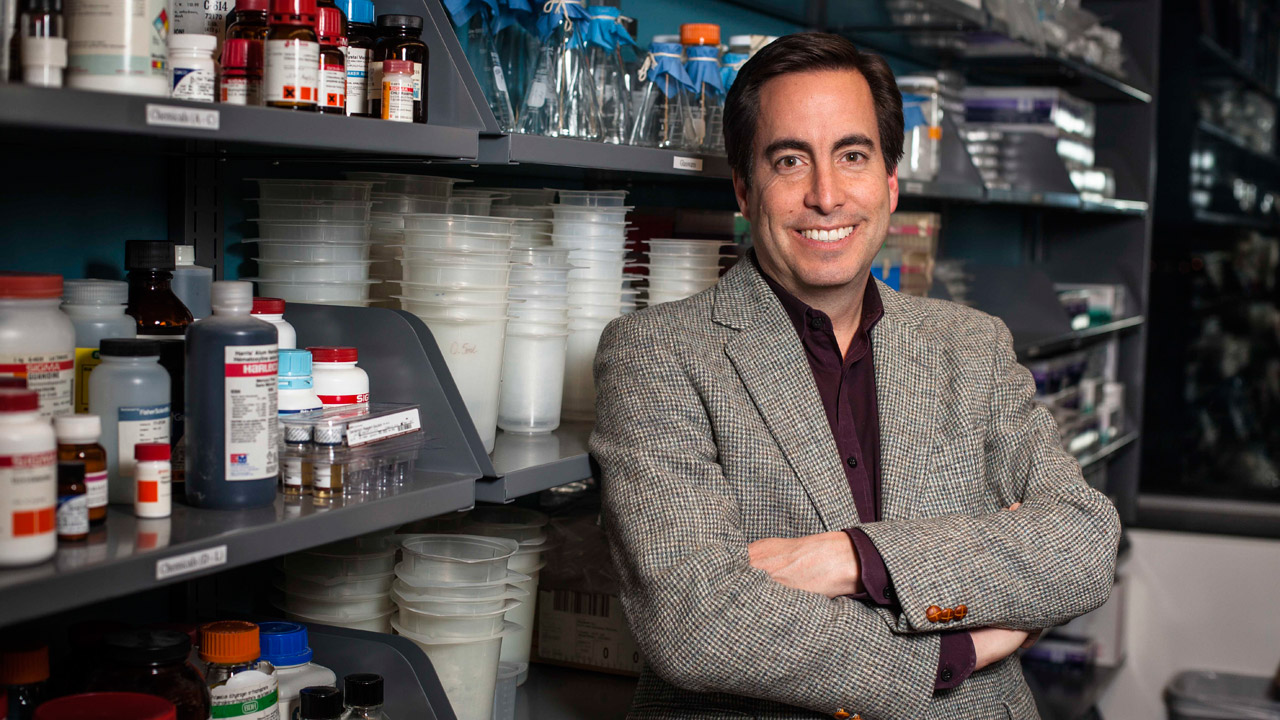Firm foundation
A quartet of scientists working in the areas of immunology, focused ultrasound, heart disease and respiratory illness at Sunnybrook Research Institute (SRI) were victorious in the Canadian Institutes of Health Research (CIHR) Foundation Grant 2016–2017 competition. Researchers at SRI secured $8 million from CIHR to support their long-term projects. They achieved a success rate of 27%, which was comfortably above the national average of 13%.
“The success of our scientists speaks to their drive, determination and leadership,” says Dr. Michael Julius, vice-president of research at SRI and Sunnybrook. “The funding milieu in Canada continues to be in a state of perilous flux. Stable investment like this from CIHR is critical if we are to ensure Canada remains competitive in science and innovation—and, more importantly, to be able to make discoveries and translate those results into better ways to prevent, detect and treat the diseases to which not a single household in Canada is invulnerable.”
Among the researchers to secure funds is Dr. Juan Carlos Zúñiga-Pflücker, a senior scientist in Biological Sciences. He will receive $2,789,055 over seven years to study blood cell development and how T lymphocytes, a subset of white blood cells, are generated from stem cells. T cells regulate the immune system, which protects the body from cancer and infectious diseases.
“We are studying an evolutionary conserved pathway called Notch signalling to allow us to study how T cells are made and further understand their function in regulating the immune system,” says Zúñiga-Pflücker. “Our recent work shows how Notch signalling can be manipulated to turn on the T cell developmental program and how we can take advantage of this process to make T cells at will.”
The research is discovery focused, but has an ultimate goal of realizing cell-based immune-reconstitution and immune-therapeutic applications in the clinic. He says he is pleased to have received the seven-year grant, as the extended time frame is needed especially in those areas that by nature take longer and are unpredictable. “It is a wonderful feeling to be recognized by your peers and to be given the necessary support to carry out our research on understanding how the immune system develops,” he says.
Dr. Kullervo Hynynen, director of and senior scientist in Physical Sciences, was awarded $2,273,295 over seven years to develop the next generation of focused ultrasound (FUS) therapy devices. Hynynen was the first in 1992 to combine FUS with MRI to guide and monitor treatment, giving birth to a noninvasive way to treat parts of the brain and body previously inaccessible. He has made much headway since then, including the launch of world’s first trials delivering FUS through the blood-brain barrier in brain cancer and Alzheimer’s disease. This grant will enable him to optimize FUS for the treatment not only of brain tumours and Alzheimer’s disease, but also stroke and deep vein thrombosis.
Dr. Dennis Ko, a scientist in the Schulich Heart Research Program, was awarded $2,005,020 over seven years to study how to improve the transition of care and outcomes of patients with cardiovascular disease. The aim is to help close the gap in the quality of care received by heart disease patients during transitions. Ko will also create a learning health system tool to align the priorities of patients, clinicians and policy makers.
Dr. Andrea Gershon, a scientist in Evaluative Clinical Sciences, was awarded $962,746 over five years to improve care for Canadians affected by chronic obstructive pulmonary disease (COPD) and asthma. She will use data from millions of Canadians, including age, sex, ethnic background, immigrant status and medical information to learn the best way to prevent acute exacerbations of asthma and COPD in people of diverse backgrounds. Chronic obstructive pulmonary disease is the third leading cause of death worldwide and affects one in four adults. Asthma affects about one in three people and is the most common chronic disease of children.
The Foundation Grant program aims to give health researchers at various stages of their careers longer-term support to pursue innovative and high-impact research. The competition unfolded over three stages and a review process conducted by expert reviewers. Stage one focused on the calibre of the applicants, and stage two reviewed the quality and expertise of the proposed research. At stage three, a multidisciplinary committee discussed the applications face-to-face. The final assessment stage was comprised of 20 competition chairs from stage 2, a chair and a scientific officer.
Results were released Aug. 3, 2017. A total of 600 applications were submitted to the annual Foundation Grant competition. The agency approved 76 grants, for a total investment of nearly $200 million. There were 63 mid-career and senior investigators awarded seven-year grants. Thirteen early career investigators received five-year grants. Of the total grants awarded, 56.6% were from Ontario.



